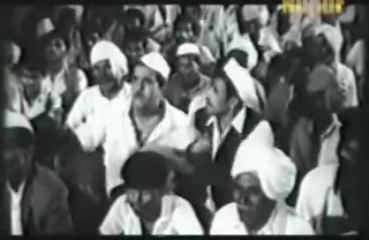

Which encroached on the identity of Marathi cinema. A major reason was the proximity to the production centre of Hindi Reasons for the decline of Marathi cinemaĮarned recognition at the national level, the cinema failed to make a Thisįor the first time that a franchise has emerged in Marathi Cinema. Currently Mahesh Kothare is working on Zapatlela 3. This film also went on to become aīlockbuster. The 3D of this film was highly appreciated and technically
#DADA KONDKE PUNS MOVIE#
He also made first marathi movie in 3D Zapatlela 2, He made the first Marathi film with Digital Special Effects, Pachadlela, in 2004. He brought a number of innovations in the technical quality of Marathi films and was the first to bring Dolby Digital sound to Marathi cinema with Chimni Pakhara.

He made the first Marathi film shot on the anamorphic format Mahesh Kothare went on to make comedy films that became The box-office, became a trend-setter, and brought young audiences to Pilgaonkar'sįilm was a box-office hit while Mahesh Kothare's became a mega hit at Pilgaonkar directed Navri Mile Navryala and around the same time Mahesh Kothare directed Dhumdhadaka. Around the mid-80s two young actors donned the director's mantle: Mahesh Kothare and Sachin Pilgaonkar. The 1980s saw two comedy heroes catapult to stardom, Ashok Saraf and Laxmikant Berde. By this time Marathi cinema was caught in either the Tamasha genre or tragedies revolving around traditional family dramas on one side and the comedies of Dada Kondke. He went on toĬreate satirical, pun-ridden films often including social and politicalĬommentary, many of which became cult classics. Who captured the audiences with his sense of humour. The early 70s saw the advent of Dada Kondke Then came directors like Datta Dharmadhikari and Raj Dutt who made traditional family dramas. The 1960s saw the emergence of directors like Anant Mane who made Marathi films based on the folk art form Tamasha. Shantaram, Master Vinayak, Bhalji Pendharkar, Acharya Atre, followed by Raja Paranjpe, Jyotiram,sonal and mumtaz, Dinkar D Patil, G.
#DADA KONDKE PUNS FULL#
Marathi cinema was in its full bloom by this time with the advent of greats like V. It was directed by Acharya P K Atre, and it was an adaptation of the eponymous novel by Sane Guruji. In 1954 at the very first edition of the National Awards, Shyamchi Aai another Marathi film, won the first President's Gold Medal for Cinema. Prabhat's Sant Tukaram was the first Indian work to win the Best Film Award at the Venice film festival in 1937. Īs cinema grew in Union of India, major production houses rose and one of them was again a company owned wholly by Maharashtrians, the Prabhat Film Company. The visual culture so painfully evolved over the years. Particularly keen on the talkies for he believed that they would destroy Pulled down its shutters with the advent of sound. However, after a few more silent films, the Maharashtra Film Company Baburao Painter made many silent movies till 1930. New medium and specialised in the historical genre. Painting, he chose episodes from Maratha history for interpreting in the Because of his special interest in sets, costumes, design and (1920) with Balasheb Pawar, Kamala Devi and Zunzarrao Pawar in stellar In 1919 Baburao Mistry - popularly known as Baburao Painter - formed the Maharashtra Film Company with the blessings of the Maharaja of Kolhapur and released the first significant historical Sairandhari Kolhapur in Western Maharashtra was another centre of active film production in the twenties. He brought the revolution of moving images to India with hisįirst indigenously made film Raja Harishchandra in 1913, which is considered by IFFI and NIFD as part of Marathi cinema as it was made by a Marathi dialogues while shooting and fully Marathi crew. Is known as the first pioneer and founder of cinema in pre-Independence The first Marathi movie released in India was Shree Pundalik by Dadasaheb Torne on at Coronation Cinematograph, Mumbai. Marathi cinema is the oldest form of Indian cinema.


 0 kommentar(er)
0 kommentar(er)
